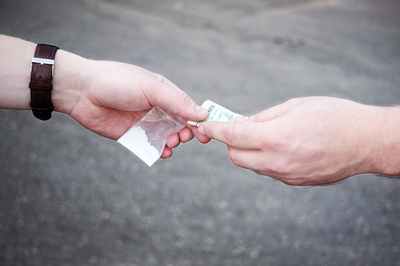
Stimulant use and related deaths are on the rise in the US.
Opioids receive a significant amount of media attention, and rightfully so: an average of 128 people die every day in the US from opioid overdoses. However, while opioid misuse is still a significant public health crisis, the opioid overdose death data shows we’re headed in the right direction in terms of remedying it with the majority of states seeing declines in deaths. This can be attributed to several initiatives, including better access to treatment and recovery, the promotion and use of overdose-reversing drugs, improved understanding of the epidemic, increased pain and addiction research, and better practices for pain management.
Unfortunately, opioids are far from the only threat to health and wellness in this country. In fact, unlike with opioids, overdose deaths involving both methamphetamine and cocaine have skyrocketed over the past decade. Known as stimulants, these figures “show that we face more than just an opioid crisis,” according to Dr. Nora Volokow, director of the National Institute on Drug Abuse (NIDA). Here’s a closer look at this troubling trend, along with what can be done to reverse it.
What are Stimulants?
Stimulants are drugs which increase alertness and cognitive function by impacting the central nervous system. Specifically, they increase the amount of “feel good” chemicals in the brain. These include the neurotransmitters dopamine and norepinephrine.
In addition to illicit substances like meth and cocaine, there are also prescription stimulants used to treat conditions like ADHD, narcolepsy, and obesity. While they can have benefits if taken under the direction of a physician, there are also side effects—including addiction.
Stimulants and Addiction
Both illicit and prescription stimulants have the same effects, except the latter are designed as “time-release drugs,” which means they don’t last as long and the high they produce is not as intense. However, their effects are the same, and may include euphoria, decreased appetite, wakefulness, talkativeness, higher energy, increased concentration, difficulty sleeping, nervousness, and increased pulse and blood pressure.
When stimulants are used for a continued period of time, the brain becomes accustomed to receiving external dopamine from the drug and starts building tolerance, which means it needs more of the drug to get the same high. As tolerance increases, so does physical dependency. This eventually develops into addiction in which the individual needs more and more of the drug just to feel normal. When individuals stop taking the drugs, withdrawal occurs.

Once addiction takes over, individuals will do anything to get the drugs that deliver the high to which they’ve become accustomed.
Stimulant Use: Rising Numbers
On their own, stimulants have a high risk for abuse and addiction and are, in and of themselves, a threat to human life. However, more deaths are being seen lately due to the co-use of stimulants and opioids. While users may combine stimulants and opioids because they “balance” each other in terms of effects, the combination can amplify both the toxicity and lethality of these drugs.
Additionally, many people are switching from opioids to methamphetamine due to the inability to obtain opioids as well as fears about unknown ingredients like fentanyl, which is not only more toxic than morphine and heroine, but also more unpredictable in terms of its effect on the body. (This reasoning is problematic as meth can also be laced with fentanyl.)
Beyond Overdoses
While overdose is a huge danger associated with stimulant misuse and abuse, it’s far from the only one. Stimulant addiction can lead to many health issues ranging from cognitive problems to cardiac and pulmonary diseases.
Furthermore, injection stimulants can lead to even more health risks, such as the transmission of infectious diseases like HIV and hepatitis via shared equipment. In fact, meth use is the single biggest risk factor for HIV. These drugs may also worsen HIV symptoms and make people more susceptible to related complications and conditions.
The Treatment Imperative
Because drug misuse and addiction is complicated, so is the journey to sobriety. In addition to the benefits of medically managed detox, the benefits of receiving treatment at a proven facility is widely known. For example, a study published in the Journal of Urban Health revealed cognitive behavioral therapy, a common component in drug rehabilitation, to be a significant harm reduction measure to reduce both stimulant use and sexual risk-taking among gay men.
The fact that, while research is underway, there are no approved medications for treating these disorders underscores the importance of behavioral interventions for stimulant use and misuse.
The takeaway? If you or someone you love is struggling with stimulant misuse, the importance of rehabilitation at a trusted rehabilitation center cannot be overstated when it comes to breaking stimulant addiction.
Harris House has been providing comprehensive drug and alcohol rehabilitation in the St. Louis area for more than 50 years. Call us to learn about admissions today.







